How to set up two-factor authentication on Facebook
Facebook offers two-factor authentication to all its users — activate it now to secure your account
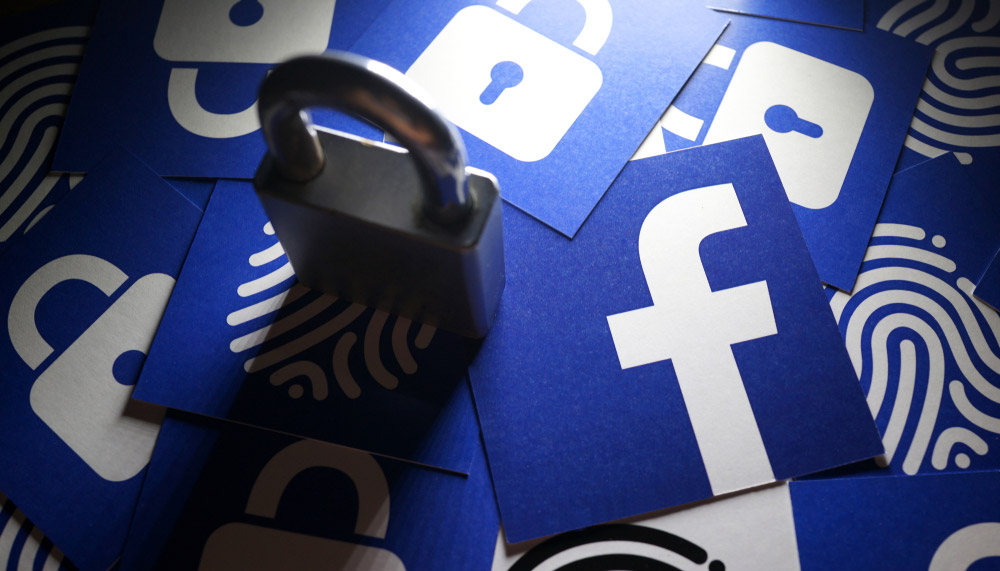
Facebook is one of the most commonly used social-media platforms, and every responsible user knows that online security has never been more essential. After setting up a Facebook account, one of the first things you should do is jump into the security settings and set up the two-factor authentication (2FA) feature.
Why is this so important? Two-factor authentication prevents other people from getting into your account even if they know your password. You prove your own identity when logging into Facebook from a new device by adding a second factor that only you have.
- How to set up Gmail two-factor authentication (2FA) on your phone
- What two-factor authentication (2FA) is - and how to enable it
- How to make yourself anonymous on Facebook
The second factor can be a code generated by an authenticator app on your phone, a code texted to your phone by Facebook or a physical security key that you plug into a USB port on your computer.
Below, we've added an in-depth step-by-step guide for setting up two-factor authentication directly from your Facebook app using both your desktop browser and your mobile devices. Keep in mind that some elements of the screenshots below have been removed/blurred for privacy purposes.
How to set up two-factor authentication on Facebook using a browser
1. After heading over to your newsfeed page on www.facebook.com , click on the arrow icon located on the top right corner and select the 'Settings & Privacy' option.
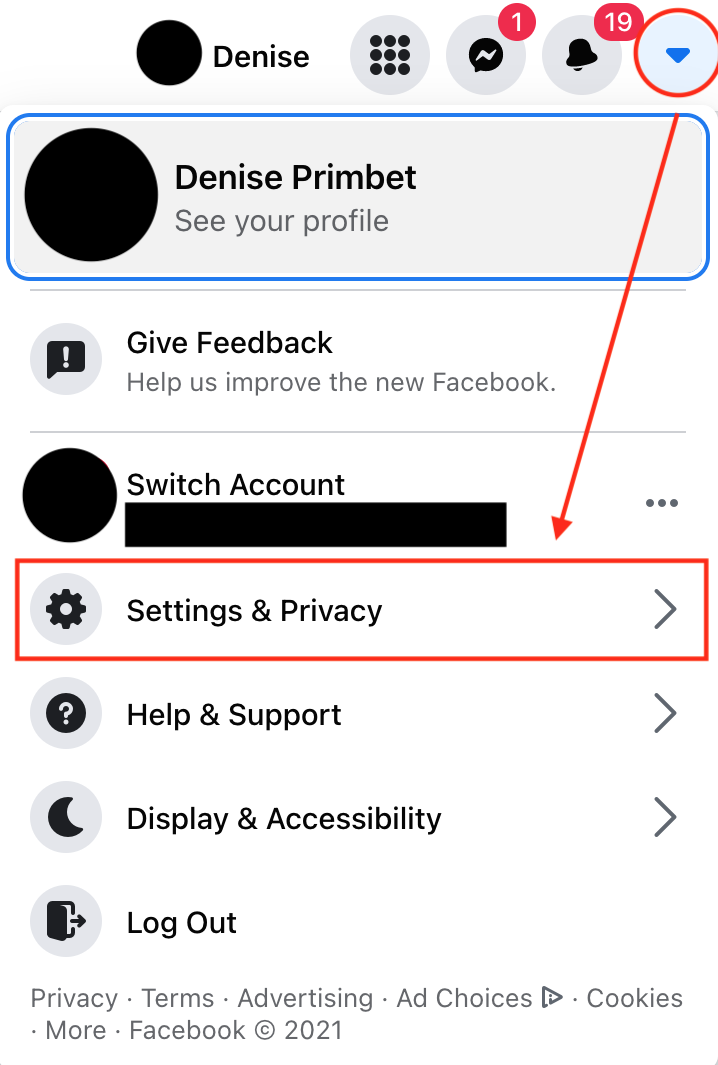
2. Next, click on Settings as indicated on the menu below. This should trigger a new menu.
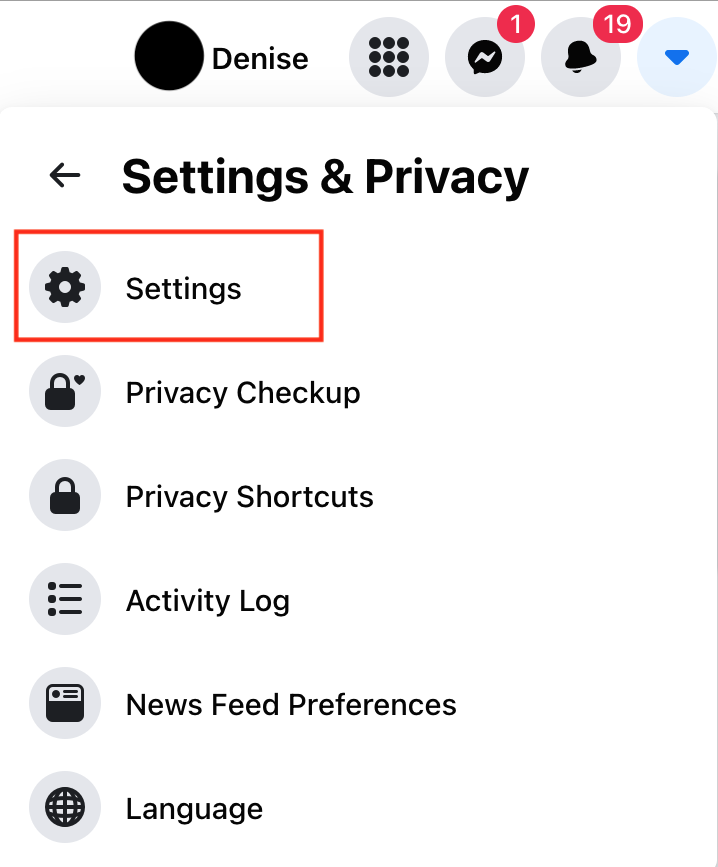
3. Once you've opened up the settings menu, go ahead and select Security and Login, which should appear as the second option from the top in the left-hand navigation bar.
Sign up to get the BEST of Tom's Guide direct to your inbox.
Get instant access to breaking news, the hottest reviews, great deals and helpful tips.
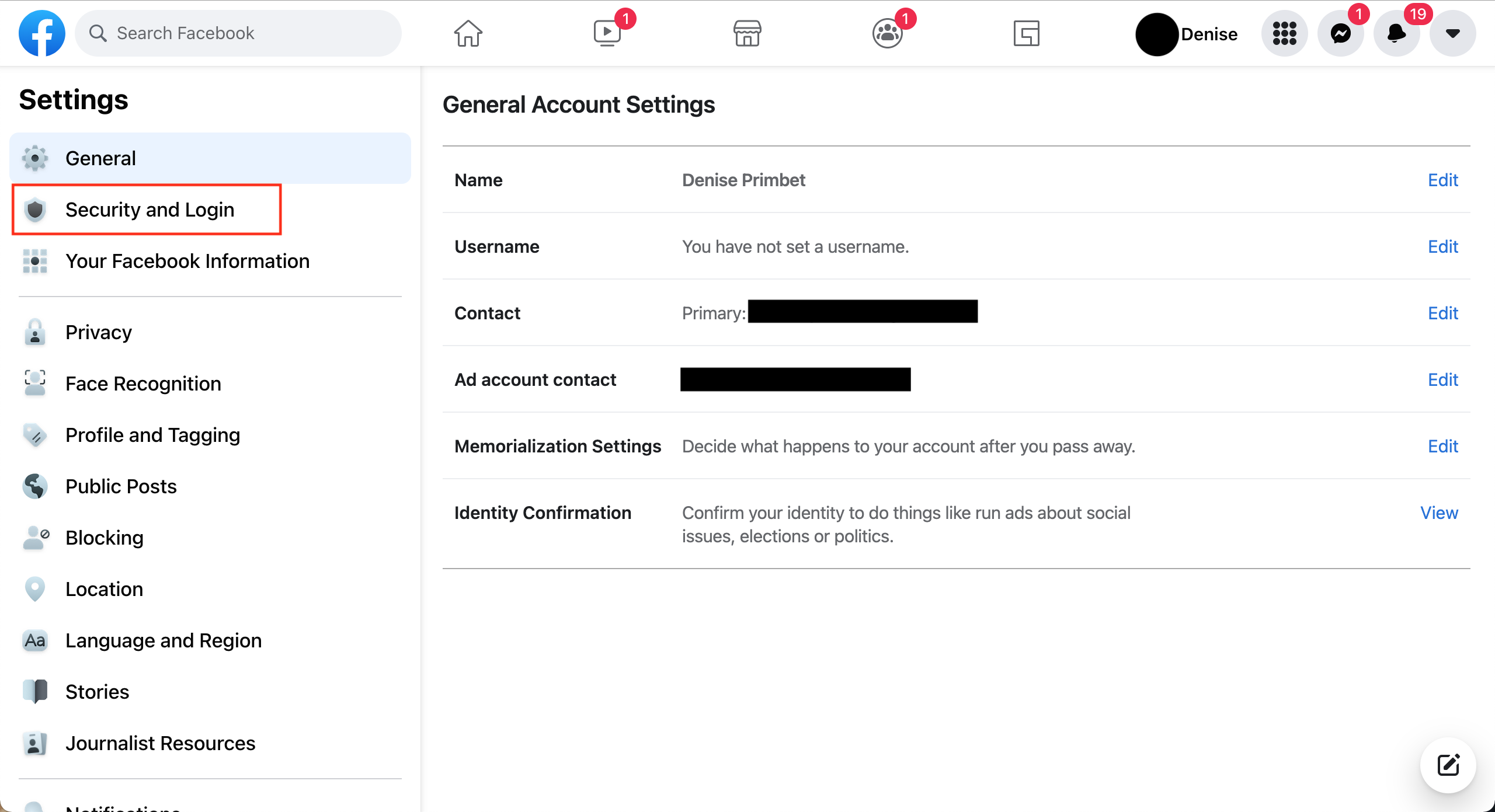
4. Next, scroll down to the Two-Factor Authentication section and click on Edit in the "Use two-factor authentication" option.
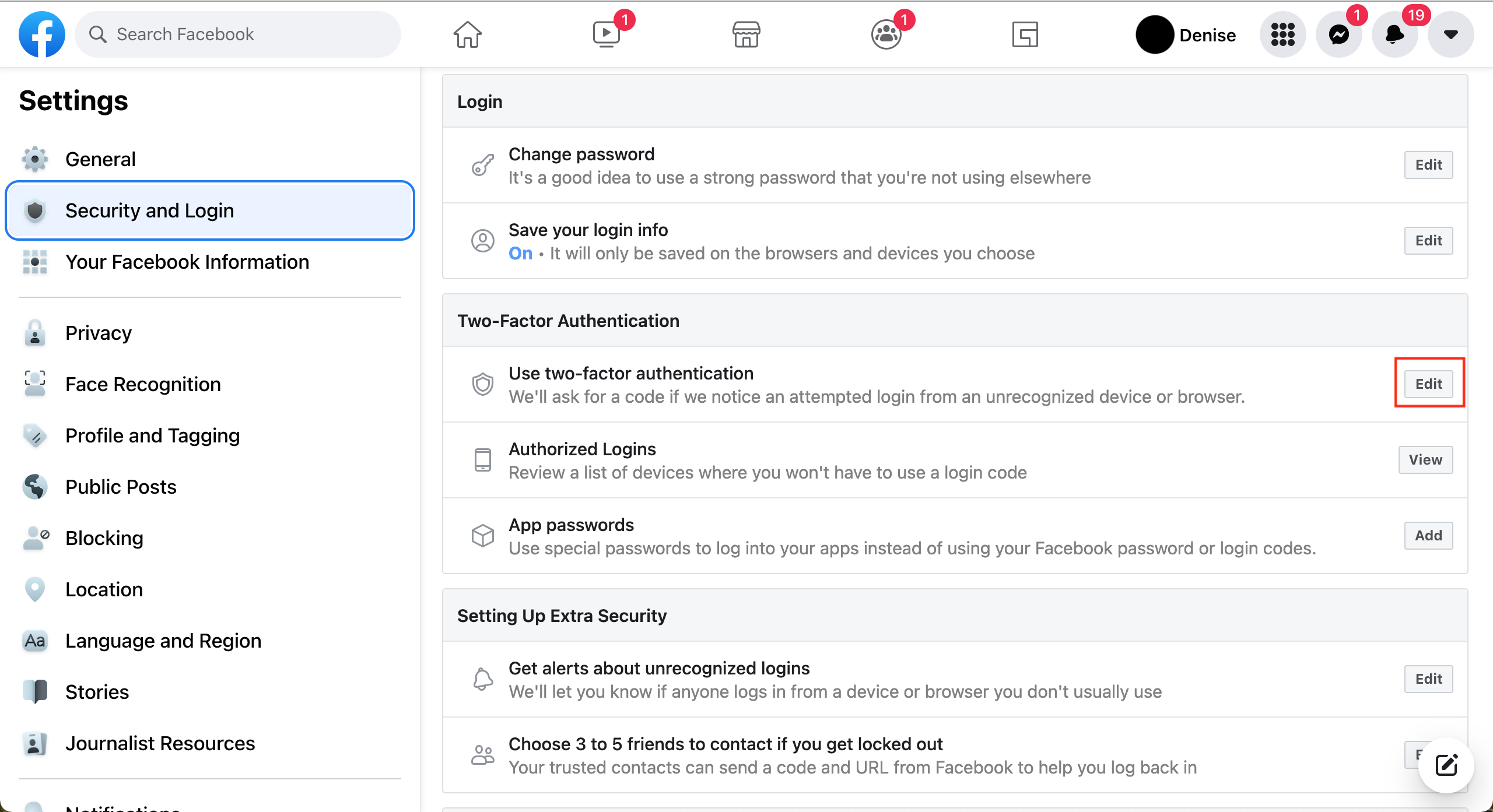
5. You can now set up two-factor authentication in multiple possible ways, but let's start with the first one — via an authenticator app.
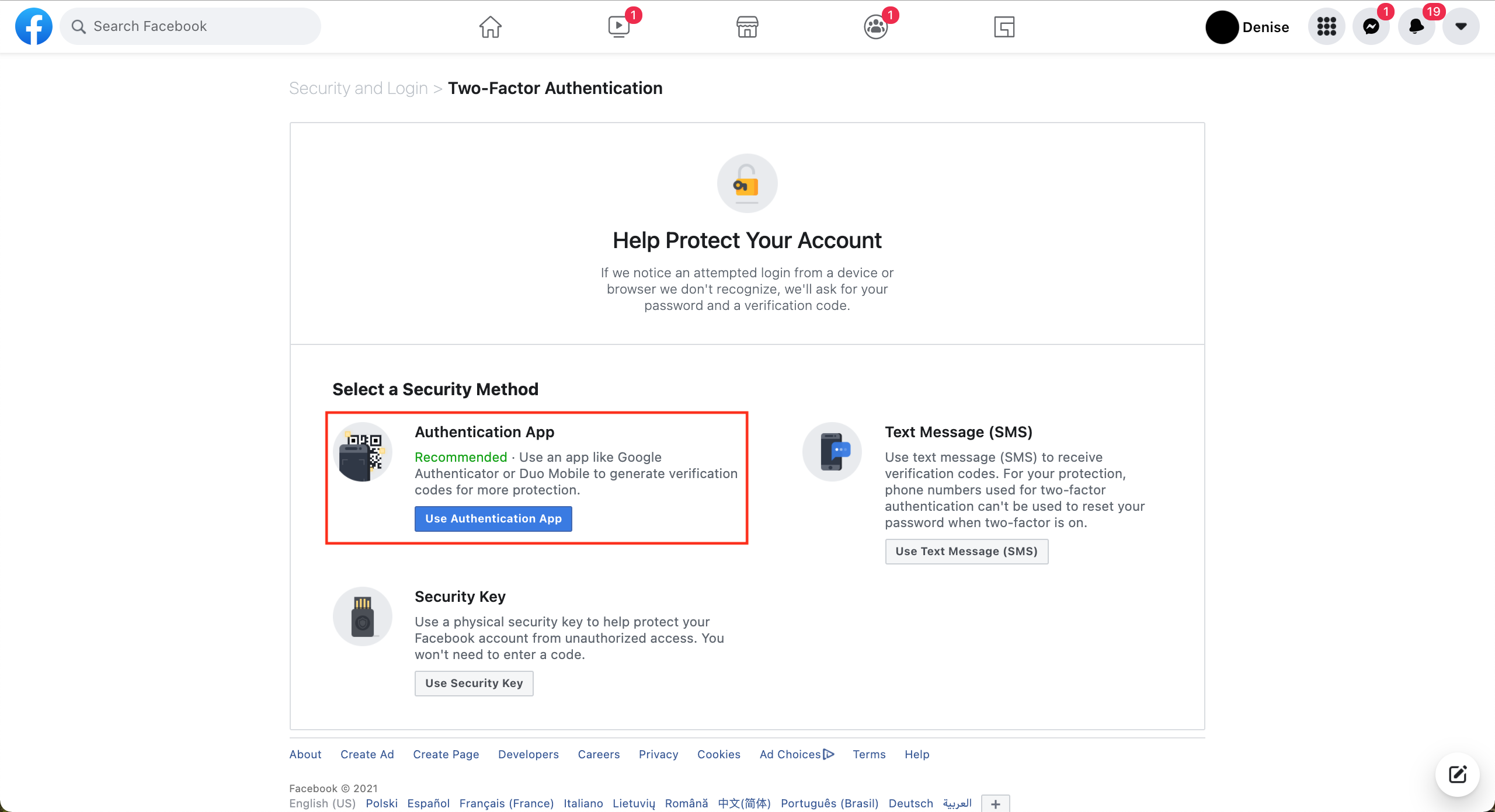
But, of course, you've got to download the app first. There are many such apps, and they all work in much the same way and are free, but perhaps the easiest to get started with is Google Authenticator.
Head over to your application store and search for Google Authenticator. We're using an iOS device, so the app page looks like this:
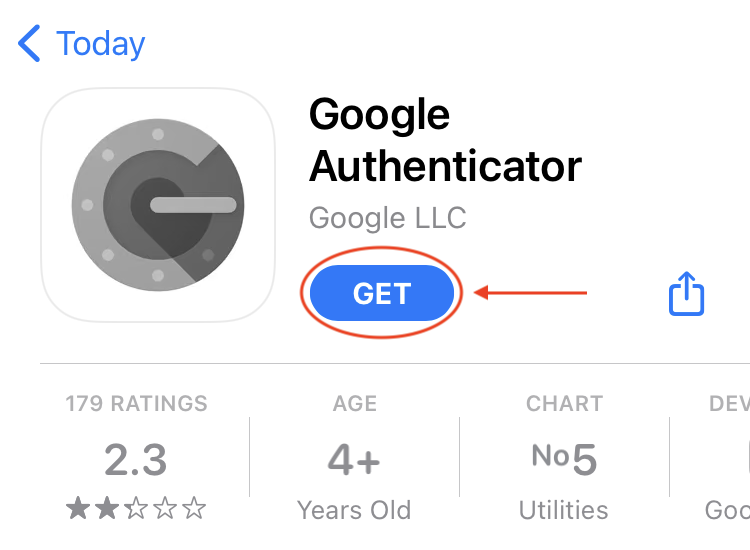
Now, go ahead and click on 'get' in order to download the app.
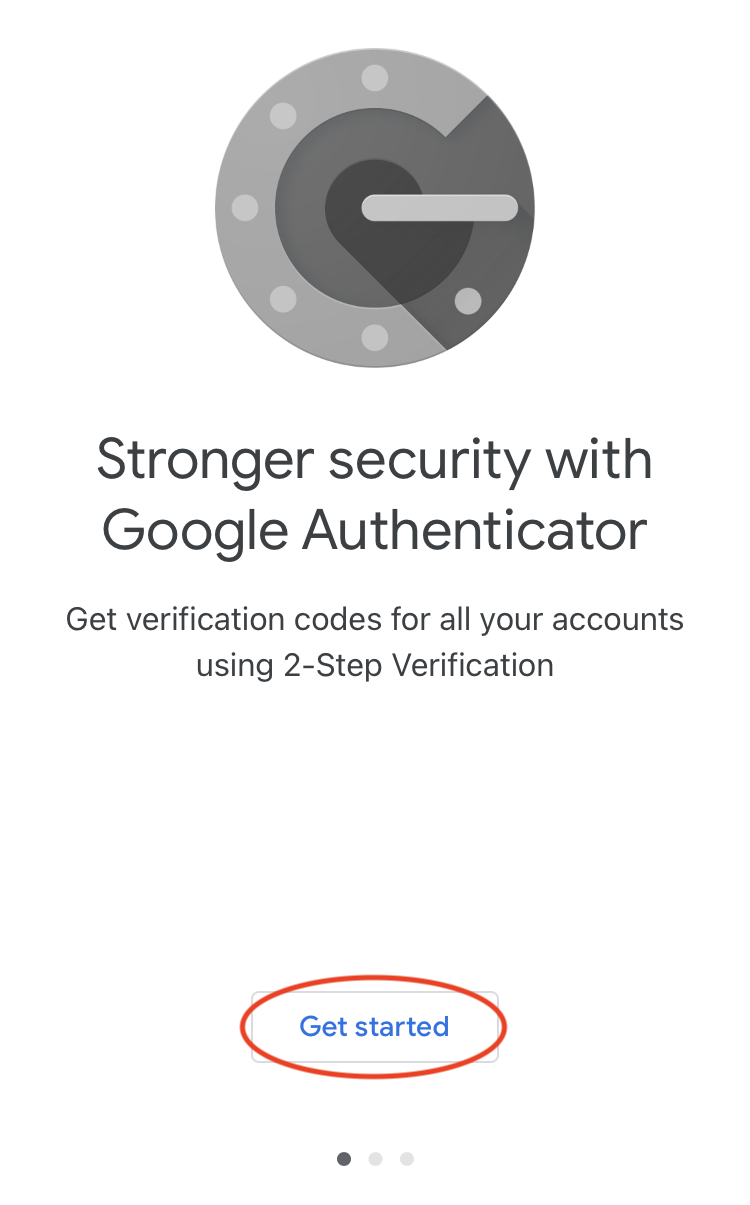
Once you've downloaded the app, launch it and tap on Get started. It will then ask you to either 'Scan a QR code or 'Enter a setup key.' Now that we've reached this stage, let's get back to Facebook.
6. Once you've clicked on the 'Authentication app' option in the Facebook menu earlier, you should be presented with a small window indicating a QR code on the left side. Grab your smartphone, open the authenticator app you just installed and scan the QR code using your camera by tapping on 'Scan a QR code' in the app menu.
Alternatively, you can enter the setup key manually by typing in the code that you should see on the right side of the window on your browser.
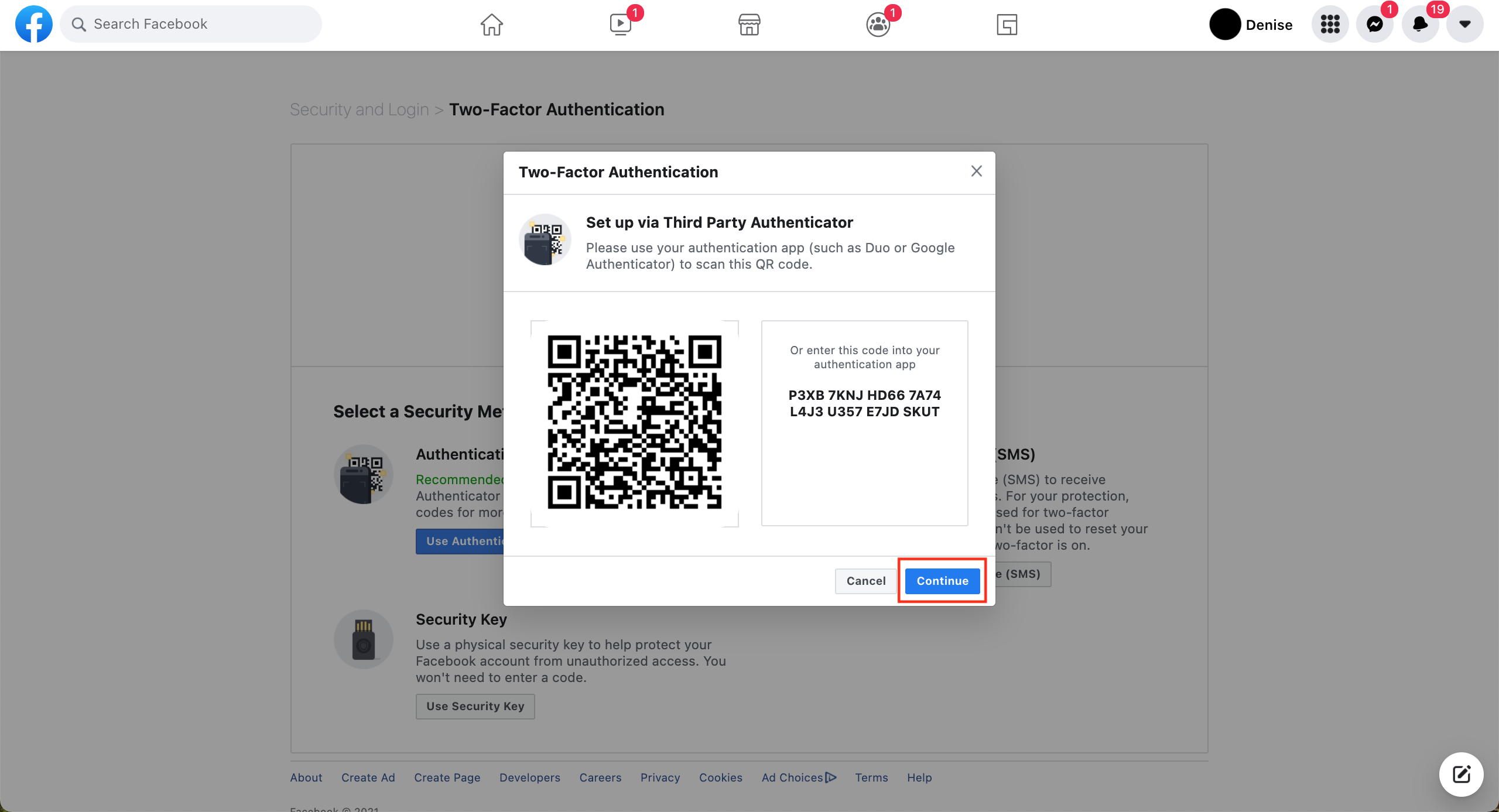
7. You should then see a six-digit code on your Authenticator app with an expiring timer to the right from it. Once the timer expires, the app will automatically generate a new code.
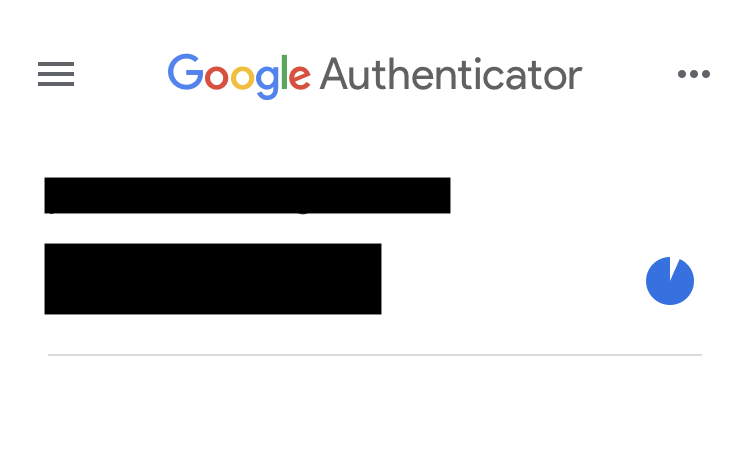
Go ahead and enter the confirmation code that you see on your app.
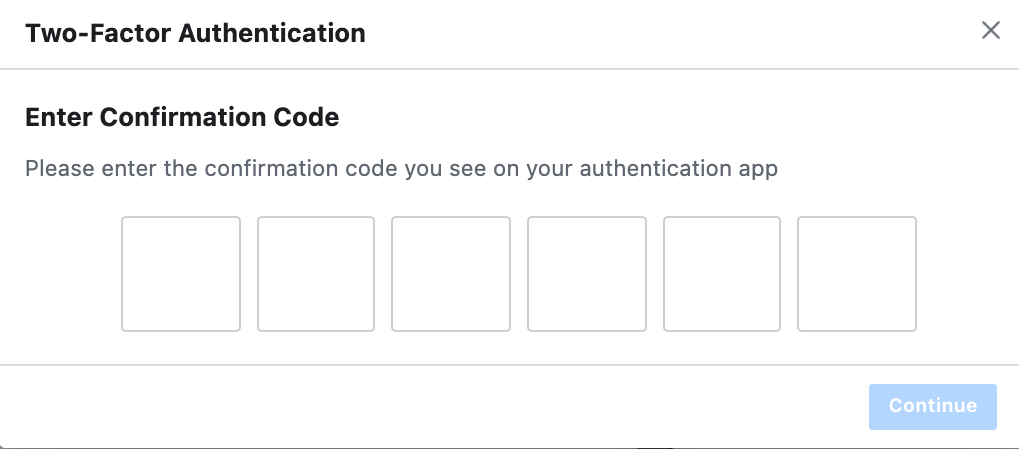
8. All done! You've successfully set up two-factor authentication on Facebook. You should now be notified/asked for a code whenever there's unauthorised login from a new device or a browser. Click on Done in order to finalize the process.
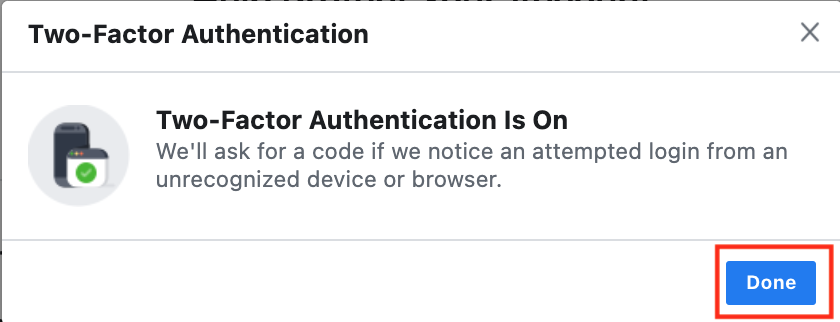
9. Now, let's circle back to step 5, where you can pick your preferred security methods for two-factor authentication. Another old-school option is to do so via a text message (SMS).
The gist of it is simple: Whenever you log in from a new device, you will receive a temporary code via a text message that you then enter along with your password to get into your account. Click on the 'setup' button to get started.
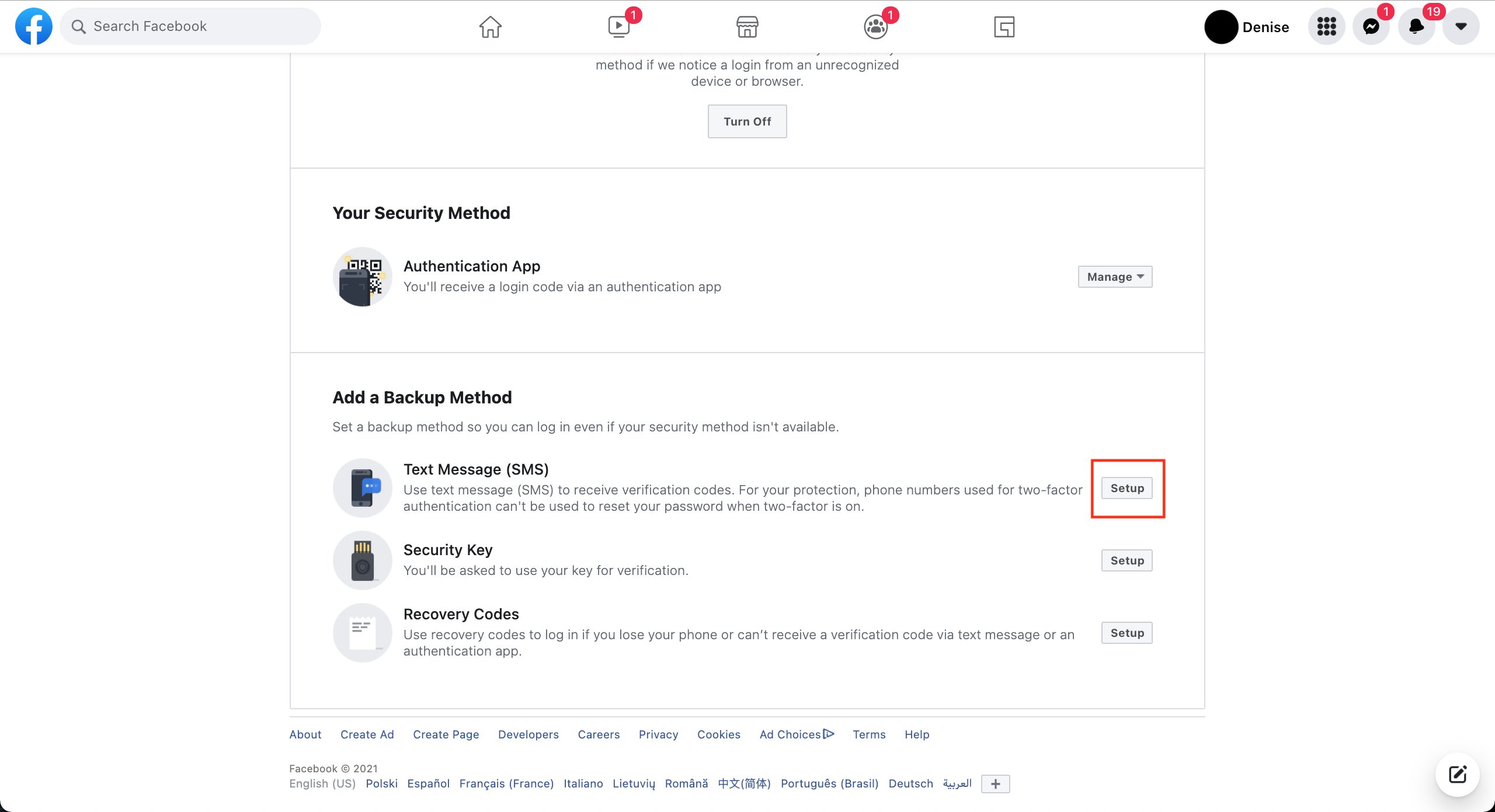
10. If your account is already tied to a mobile phone number, you can select it by clicking on one of the options listed. Alternatively, you can add a new phone number by selecting the last option that appears in the menu. Done? All right, press Continue to proceed.
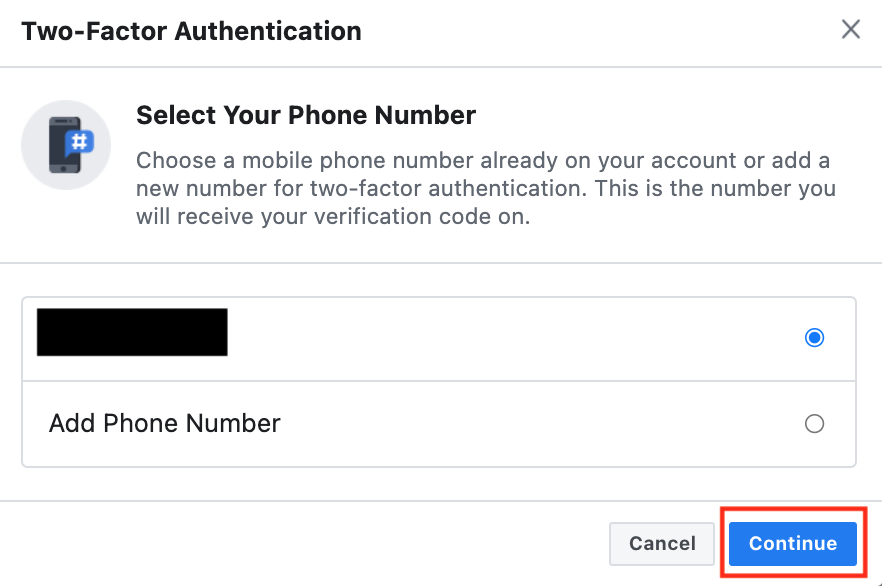
11. All set! Now you have two security methods set up for two-factor authentication, but let's add more — better safe than sorry! The next option is to set up a security key, which you can use for verification. Click on 'Setup' to get started.
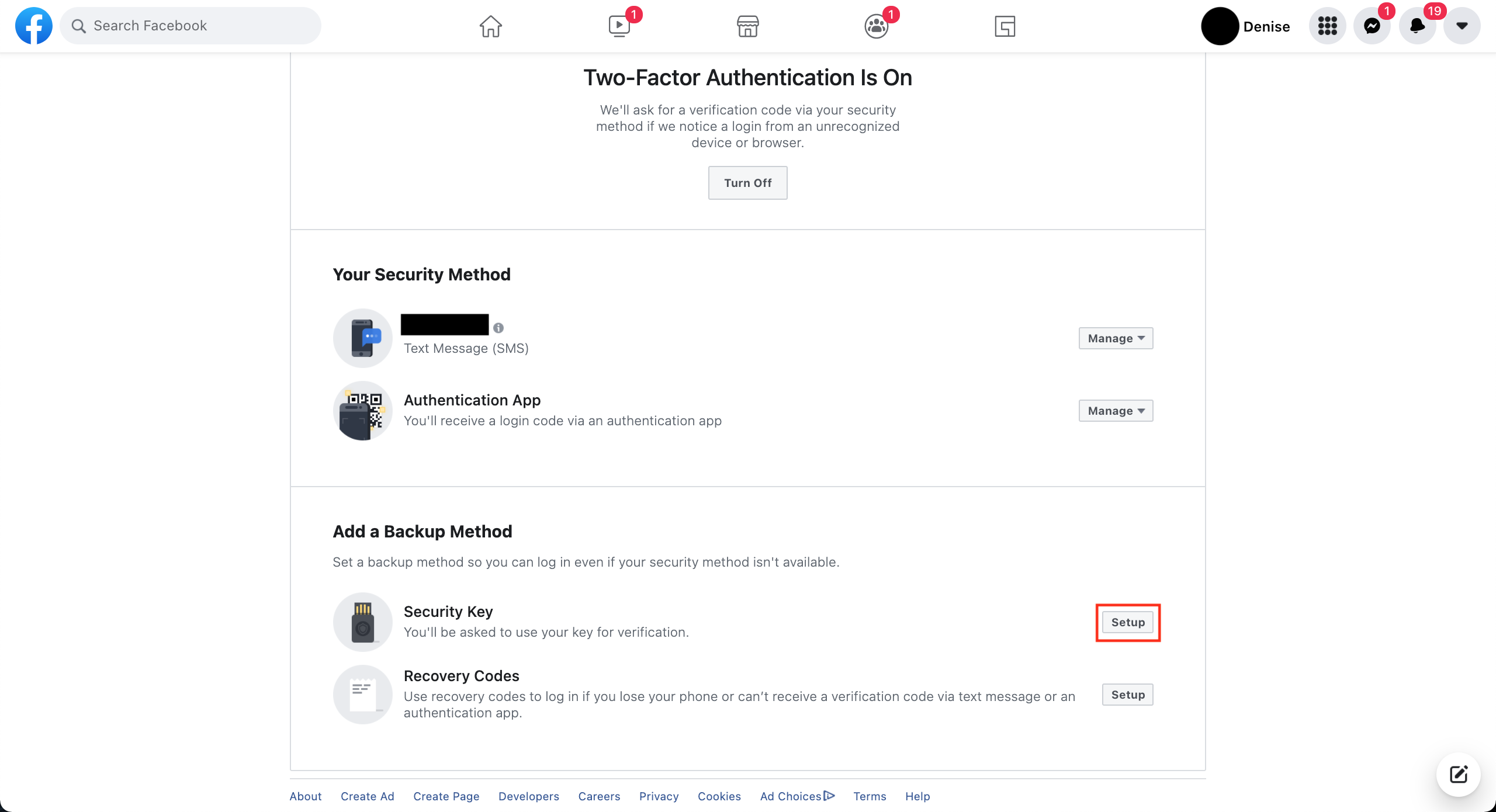
12. For this method, you have to have a USB security key. (You can get one for about $20 online.) We didn't have one at hand, though all you need to do is to register it by clicking on 'Register Security Key' and following the on-screen instructions.
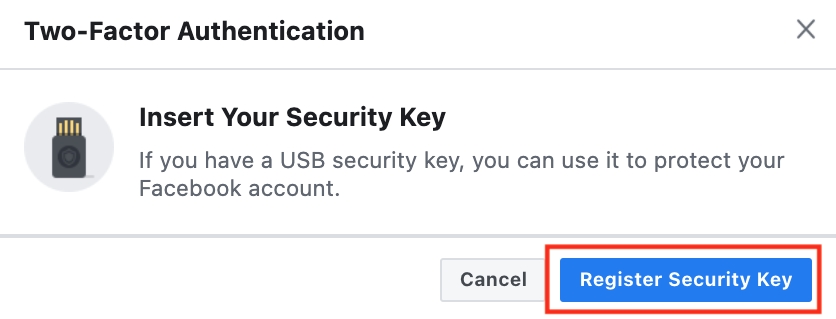
13. Now, last but not least, you can also set up two-factor authentication on Facebook using recovery codes. This is how it works: You will get eight 8-digit recovery codes that you can use to log in if you happen to lose your phone or if you can't use an authentication app. Once you've clicked on Setup next to Recovery Codes, you should now be able to select Get Codes to get started.
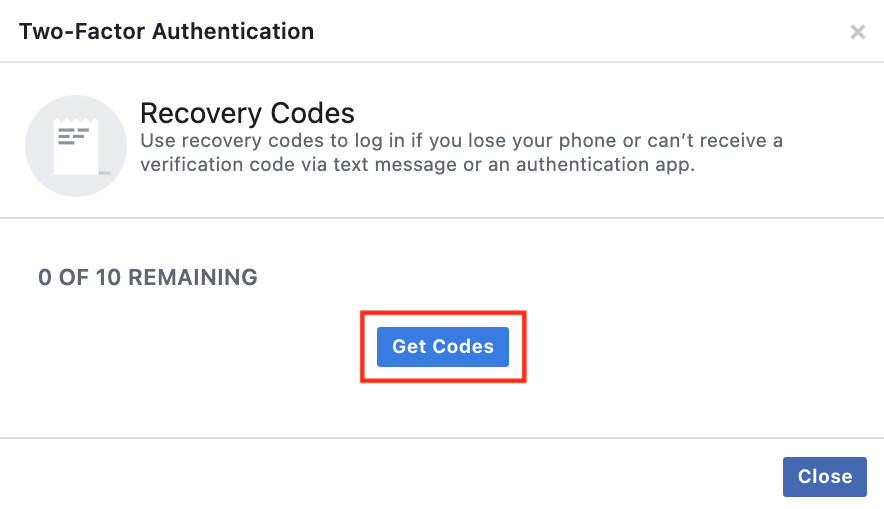
14. For security purposes, we couldn't include a screenshot for this step, though you should now be presented with your codes. One thing to note, however, is that each code can only be used once. Be sure to store your codes in a safe but accessible place.
All done! Congrats on setting up two-factor authentication on Facebook using all security methods!
How to set up two-factor authentication on Facebook using a mobile app
1. First, launch your Facebook app on your mobile device (we're using an iPhone). Then click on the Menu icon located at the bottom right corner of the screen. (On Android, the Menu is in the top right corner.)
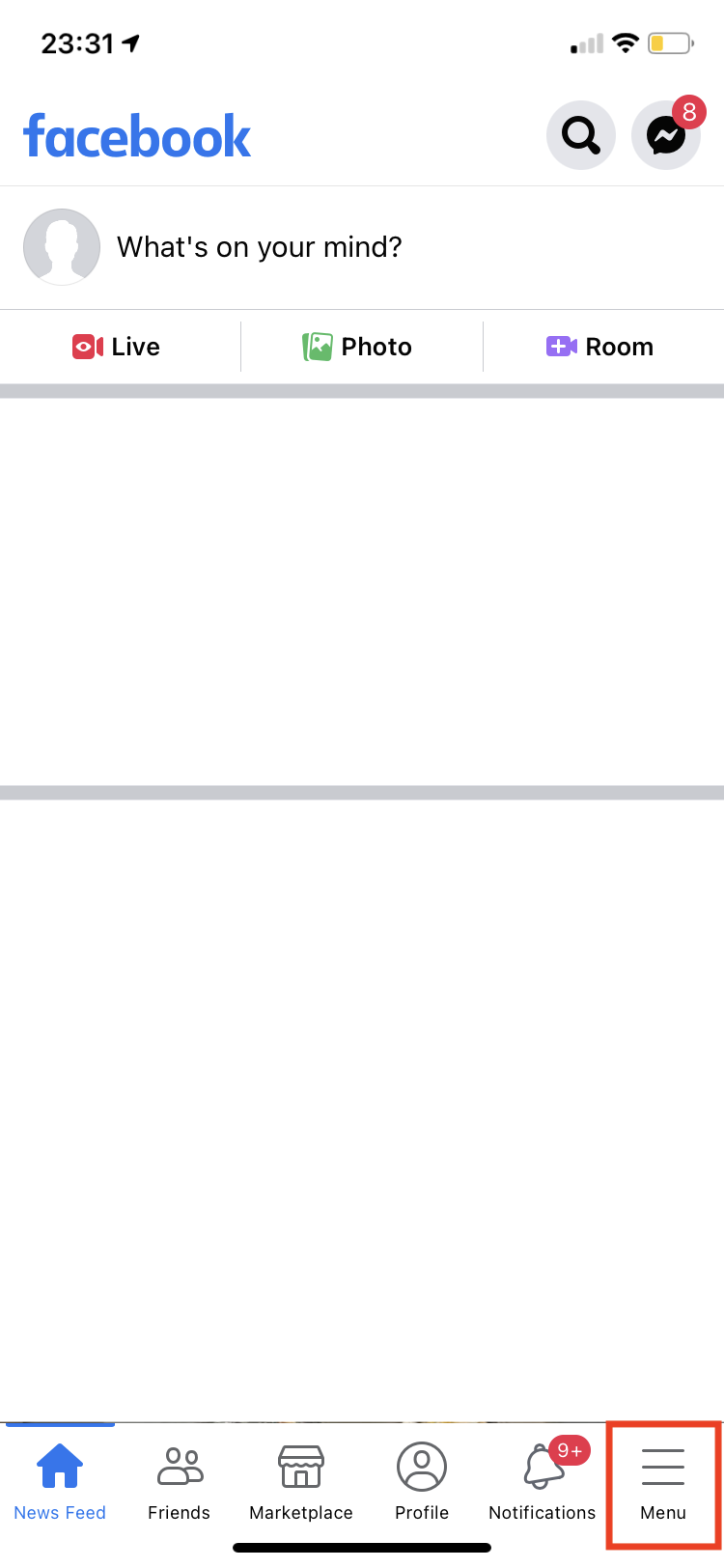
2. Scroll down and select Settings & Privacy as shown below.
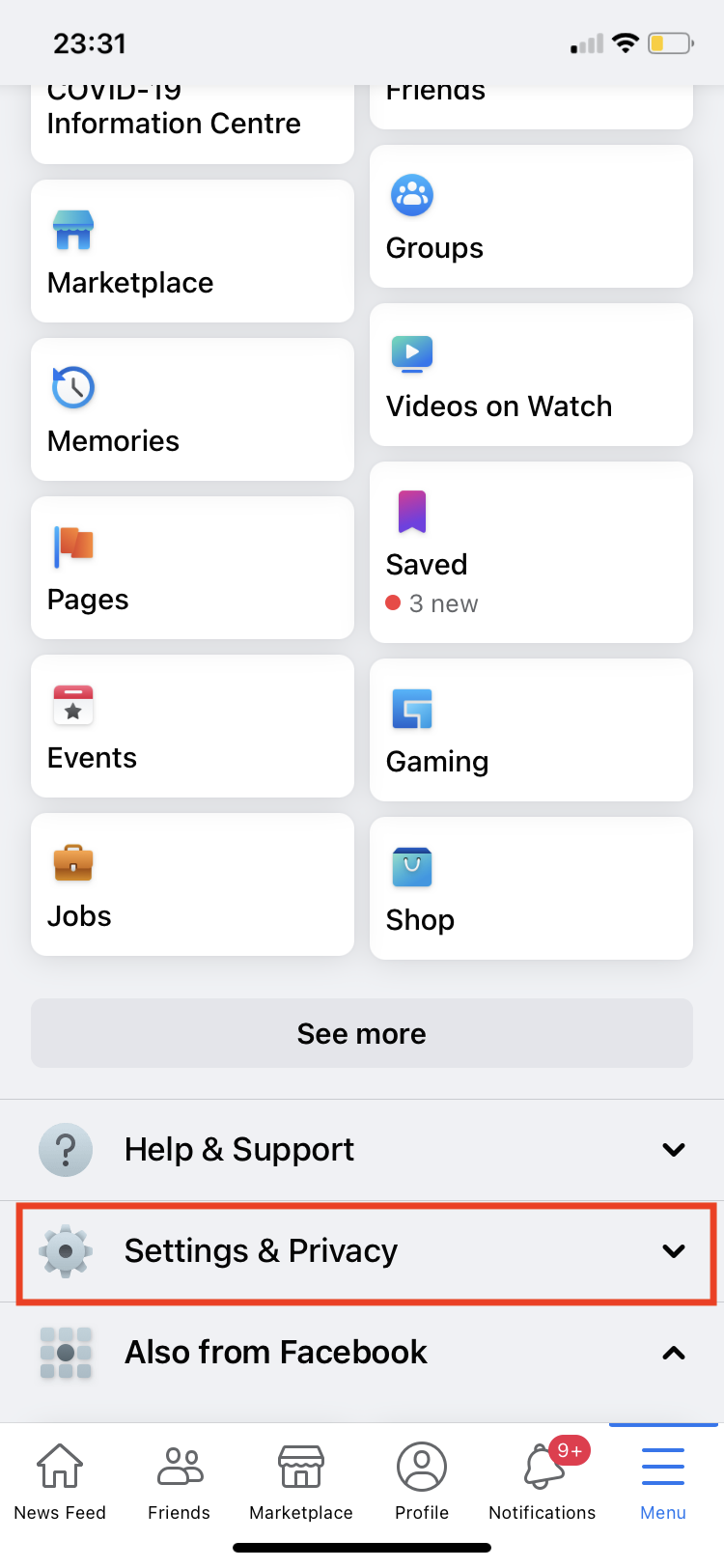
3. Next, tap on the Settings option to reveal a new menu.
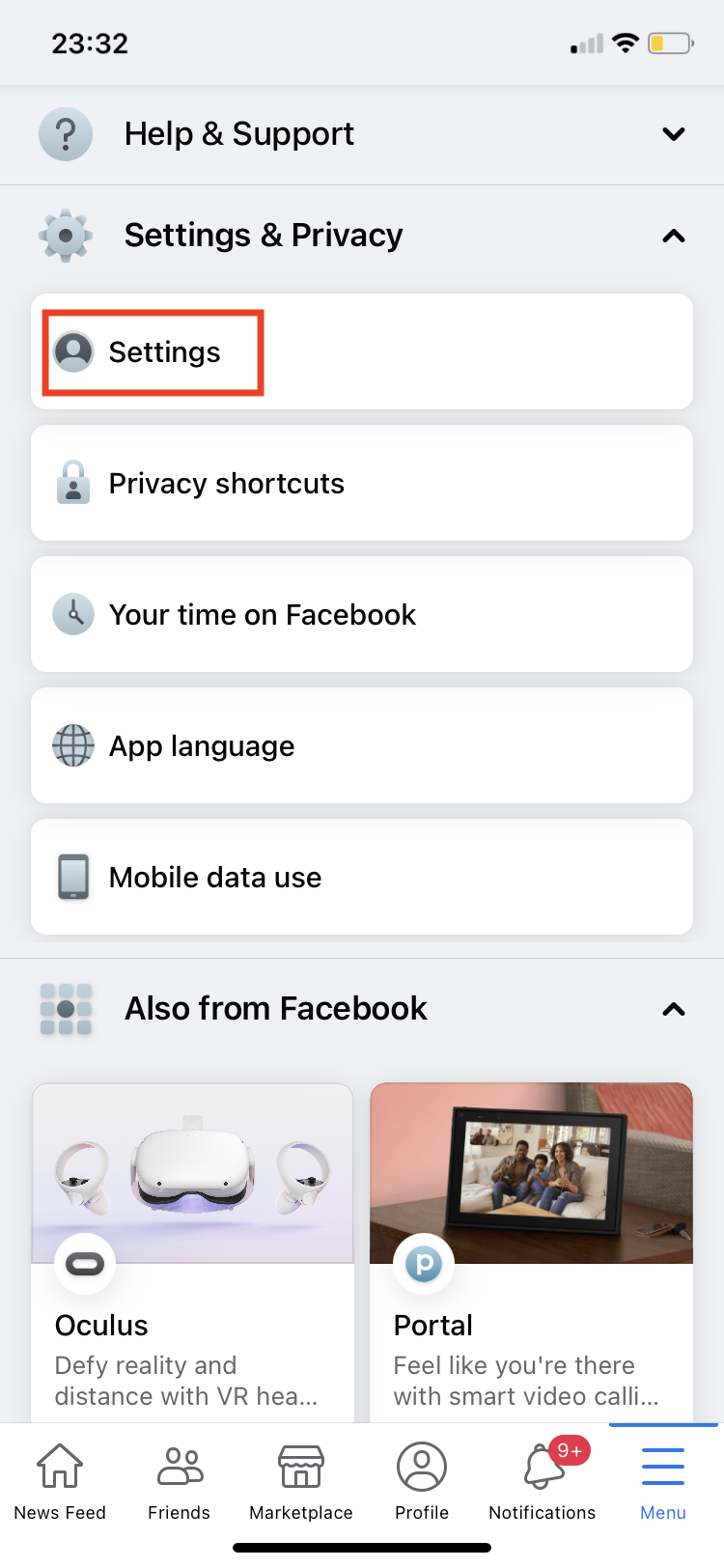
4. Scroll down to the security section and select Security and login to get started. (On Android, tap Password and Security.)
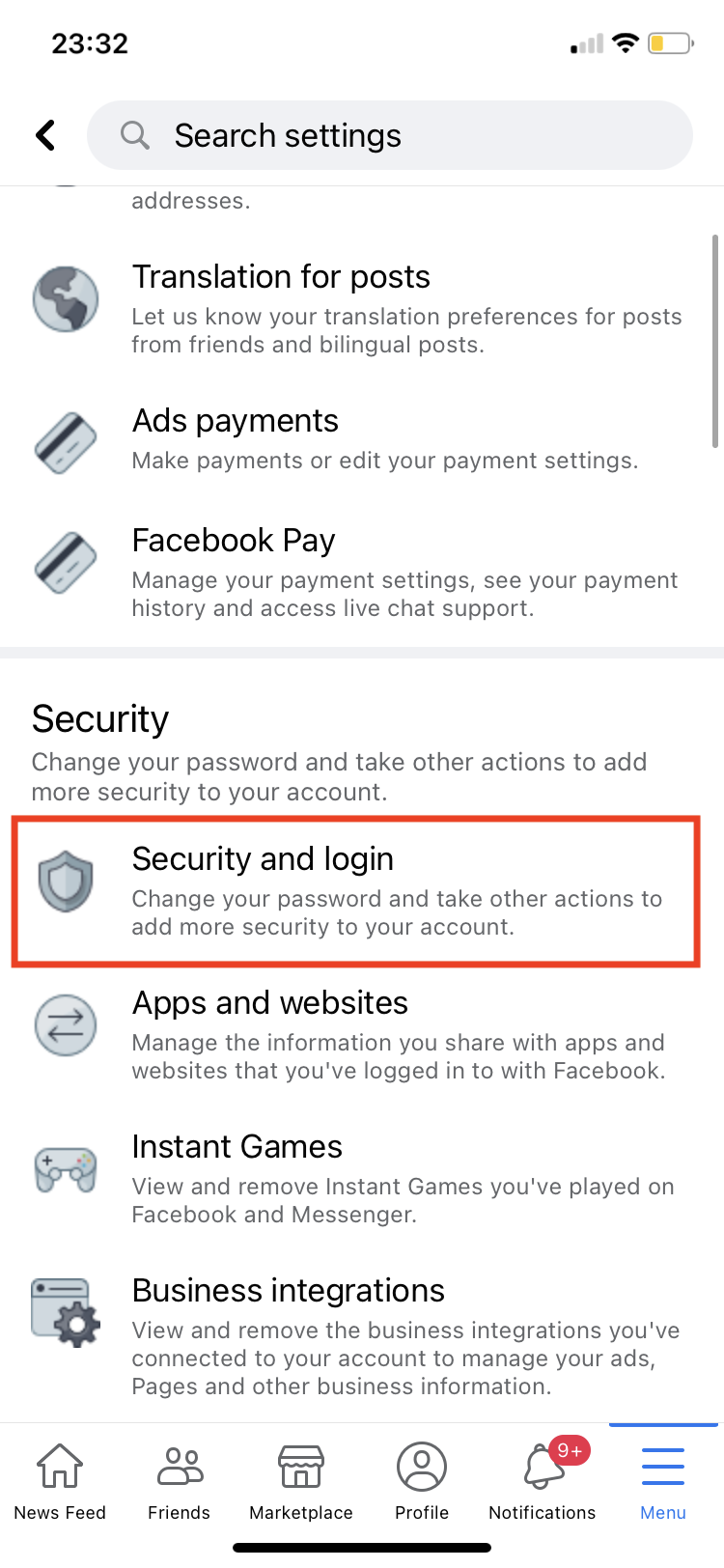
5. Go ahead and tap on Use two-factor authentication in the two-factor authentication section.
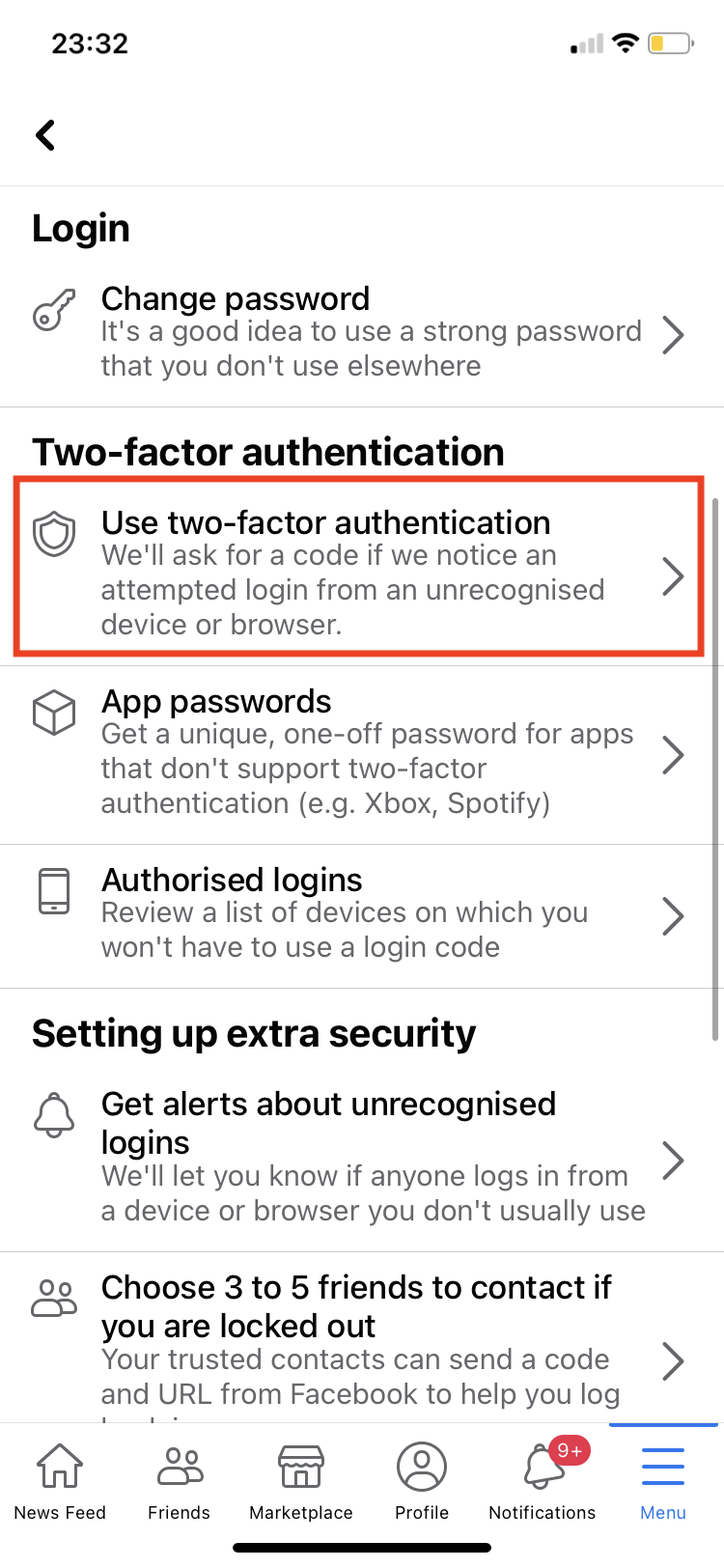
6. You can now set up two-factor authentication in multiple possible ways, but let's start with the first one — via the Google Authenticator app. Press Continue to proceed and follow the same steps indicated in step 5 of the previous section of the article to set it up.
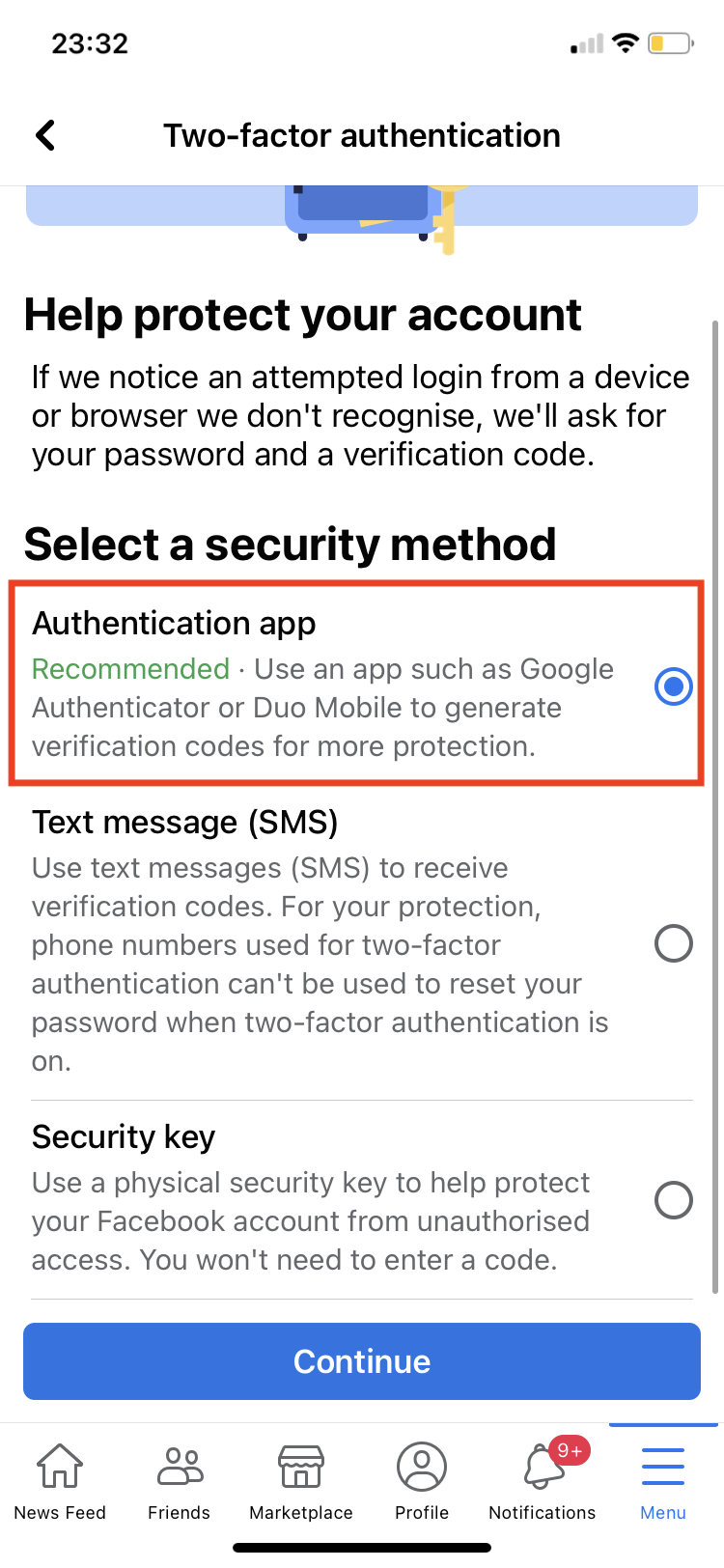
7. Another option is to do so via a text message (SMS). The gist of it is simple" Whenever you log in from a new device, you will receive a code via a text message to then enter in order to get into your account. If your account is already tied to a mobile phone number, you can select it by tapping on one of the options listed.
Alternatively, you can add a new phone number by selecting the last option that appears in the menu. Press Continue to proceed.
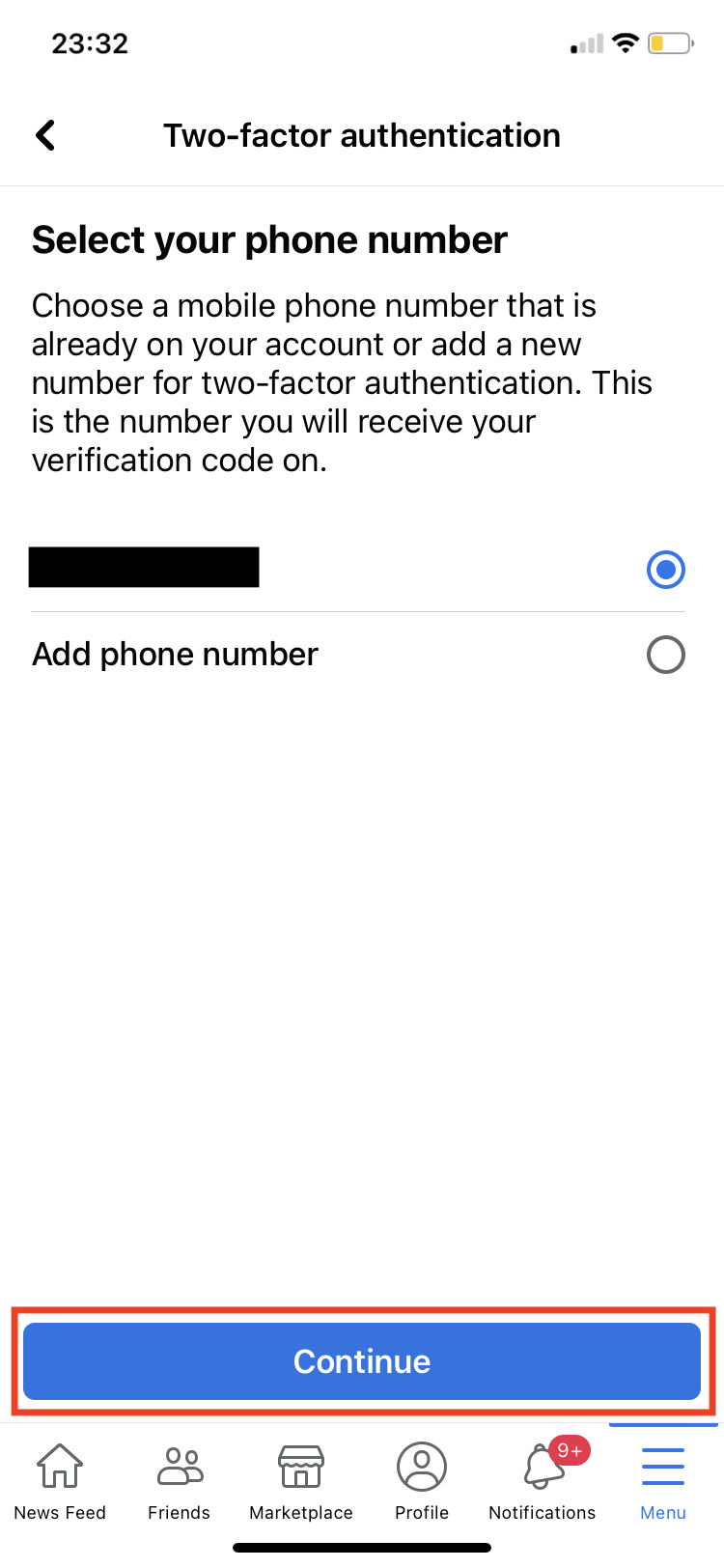
8. If you want to set up other methods, such as using the recovery codes and security key, circle back to steps 11-14 from the previous section of the article as the actions are identical.
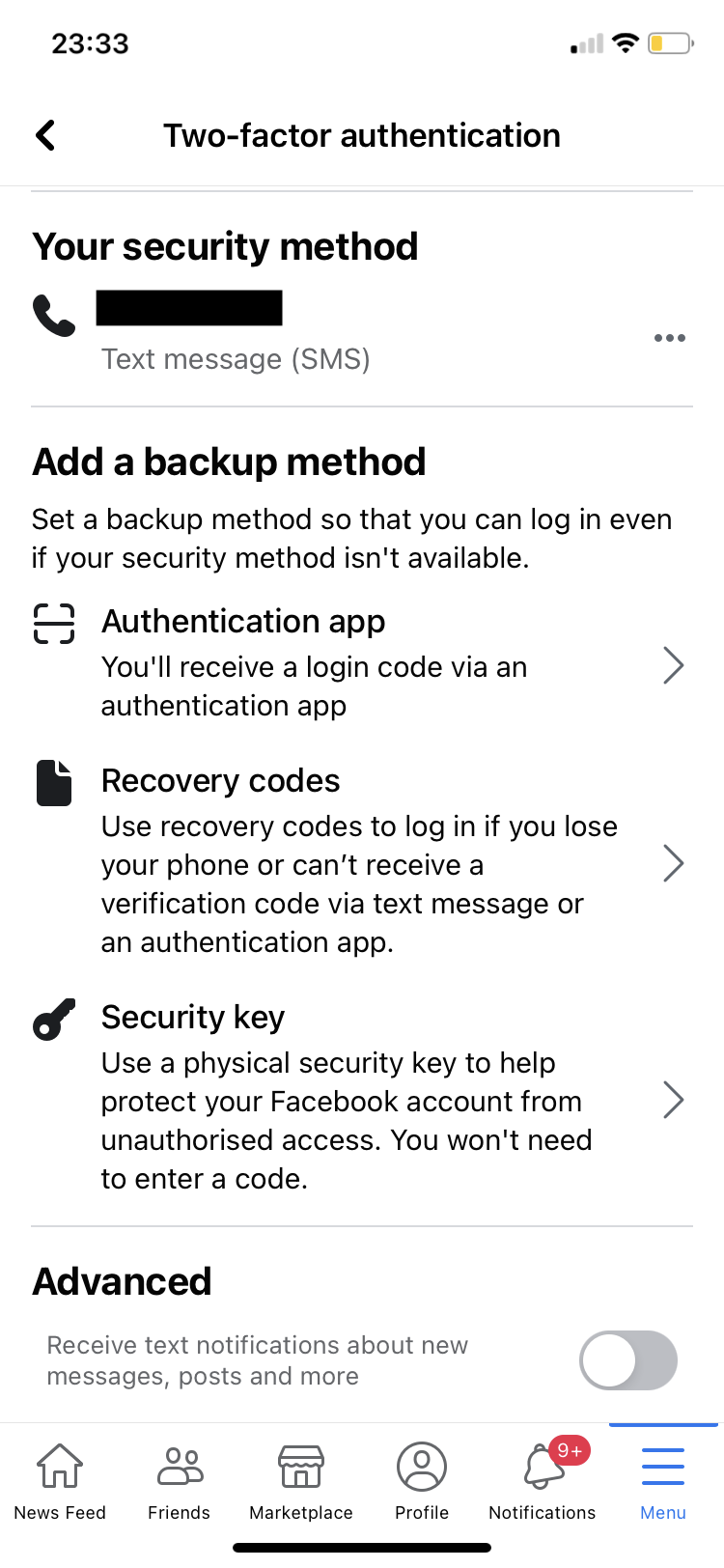
9. Congratulations on setting up two-factor authentication on Facebook using all security methods. Go ahead and press on 'Done' to finalize the process.
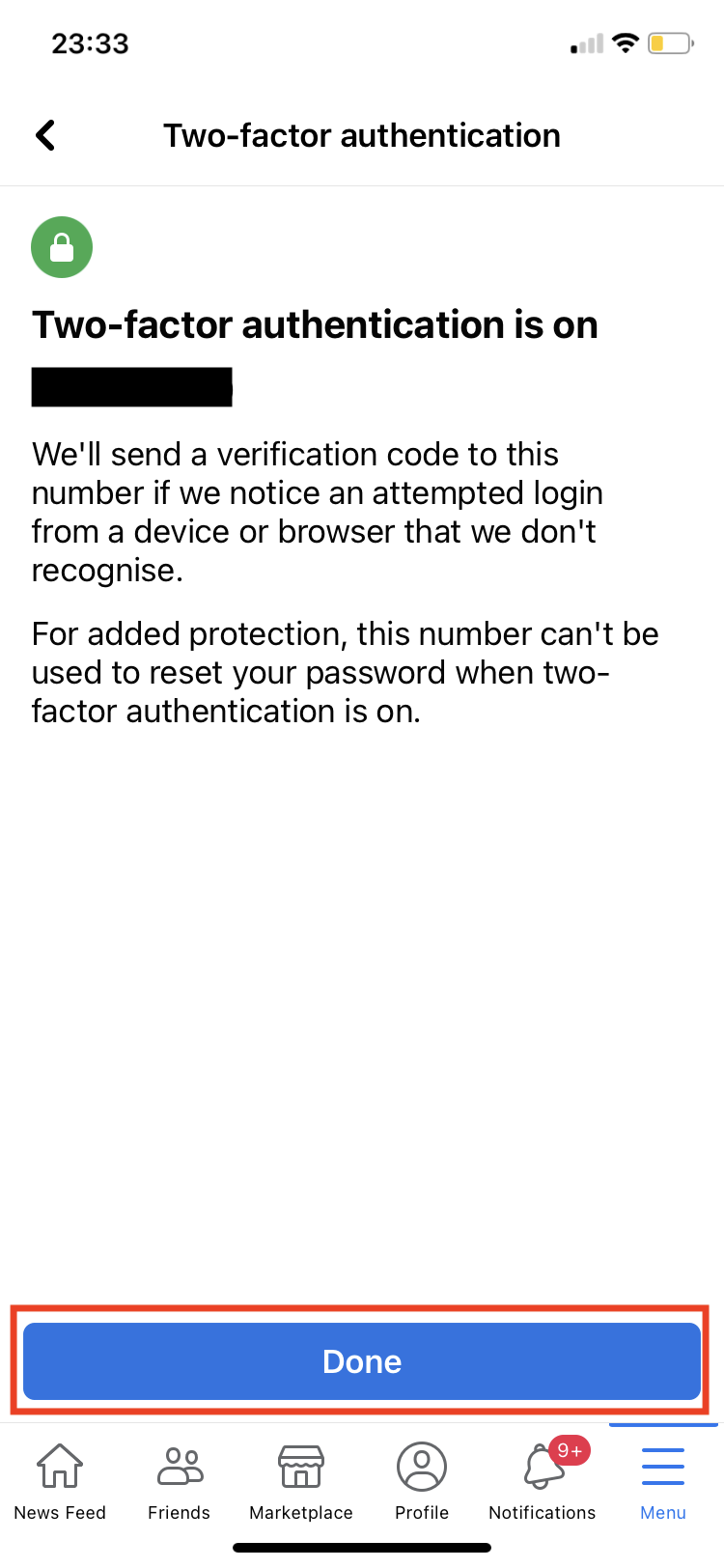

Denise is a Life Reporter at Newsweek, covering everything lifestyle-related, including health, relationships, personal finance, beauty and more. She was formerly a news writer at Tom’s Guide, regularly producing stories on all things tech, gaming software/hardware, fitness, streaming, and more. Her published content ranges from short-form news articles to long-form pieces, including reviews, buying guides, how-tos, and features. When she's not playing horror games, she can be found exploring East London with her adorable puppy. She’s also a part-time piano enthusiast and regularly experiments in the kitchen.
